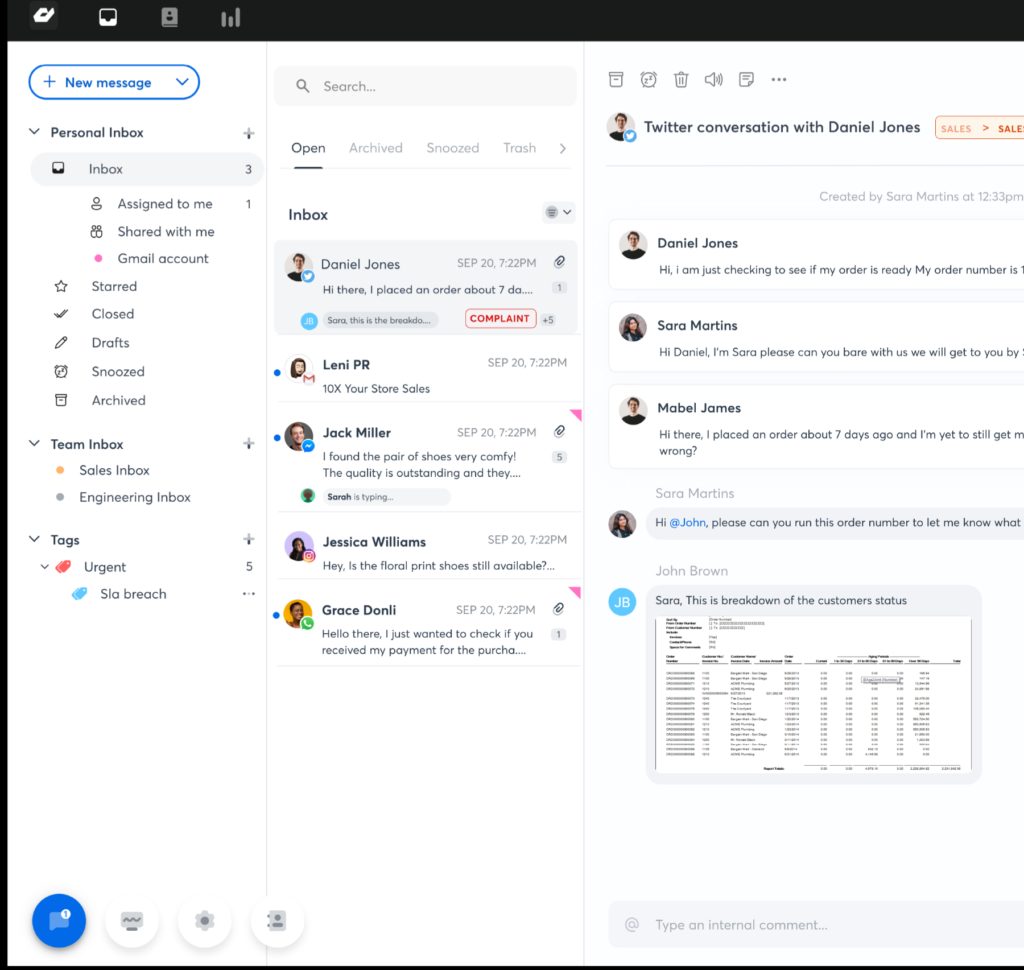In the thick of the COVID-19 pandemic, when businesses were struggling to engage and retain their customers across all channels, Kolawole Balogun, Collins Iheagwara, and Tioluwani Kolawole, 3 acquaintances who claimed to have been bouncing with the idea to build a communication super app earlier than 2020, decided to help businesses solve this problem.
The result of their decision is Simpu, a B2B software-as-a-service (B2B SaaS) startup that—as its name implies—simplifies communication and customer engagement for businesses.
The platform launched into private beta in November 2021 with its all-in-one omnichannel inbox that allows businesses to receive and send messages across different platforms—email, Whatsapp, SMS, iMessage, Facebook, Instagram, and Twitter—from a single dashboard. With its omnichannel inbox, the company said it wants to empower businesses of all sizes to scale easily by helping them deliver fast, personalised, and consistent customer support and sales experiences to their clients.
On Wednesday, with over 90 businesses currently using its services, and a $1 million pre-seed capital war chest that was closed last month, the startup announced that it’s coming out of private beta into the public.
“The average online business has to combine at least 8 apps daily and up to 36 apps to achieve some sync,” Iheagwara, Simpu CEO, said in a statement sent to TechCabal. He added that those apps usually don’t sync well with each other.
Oyinkansola Alade, 24, a social vendor who sells dresses on Meta’s family of apps (Facebook, Instagram and Whatsapp), corroborated Iheagwara’s claim. “The most challenging part of my work is switching between apps to answer customers,” she said. “Most times I miss their messages in a rush to answer DMs.”
There is, indeed, an explosion of communication apps among consumers. Consumers want to be reached on their preferred channels, posing a massive problem for businesses. “To be honest I think I’d stick with a brand that is reachable across all the platforms I use. I use like 3 social media platforms actively, and I love it when I don’t have to switch apps to place an order or lodge a complaint,” Lukman Fadipe, a social shopper, told TechCabal.

“Countless times, business owners have asked us how they can communicate with their customers quickly and effectively across all the channels and apps. For us, that was the gap,” Iheagwara added.
But this gap is not only visible to the Simpu founders. It’s a gap other big techs and upstarts alike have marked and been building to close since businesses started engaging their customers through multiple channels online. Global established brands like Intercom, HubSpot, Bitrix 24, Salesforce, and even Zoho (which is reported to be opening a Lagos office in July), have been directly and indirectly building in this sector long before Simpu was even conceptualised. But according to the CEO, “customers have been switching from these established platforms to Simpu in the past few months to manage communication and their customer data.”
Businesses dumping the likes of Hubspot and Zoho for a 2-year-old Simpu may sound like a stretch, but the company claims the switch is happening because they offer more than just an omnichannel communication platform, and they understand local nuances. Simpu said they are also providing tools for businesses to optimise their entire sales funnel, helping customers make faster purchase decisions by engaging them in real time with features like website live chat. Businesses can also connect a plethora of third-party integrations, like core banking backends, databases, or marketing lists to unify their siloed data, which can then be used for precision marketing over SMS and email.
According to Iheagwara, the company makes money by selling monthly or yearly subscriptions to its users, and has hit over $80,000 in SaaS revenues since November 2021 when it went into private beta. Simpu currently only operates in Nigeria with a few international customers in the UK and the US. Iheagwara told TechCabal that their goal for now is to “focus on building more tools and grabbing market shares in Nigeria”. He also said they have got expansion plans that will be implemented once the Nigerian market is secured.




















